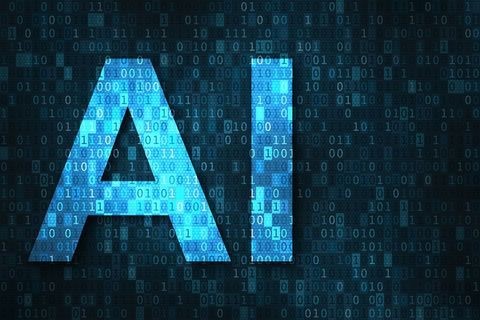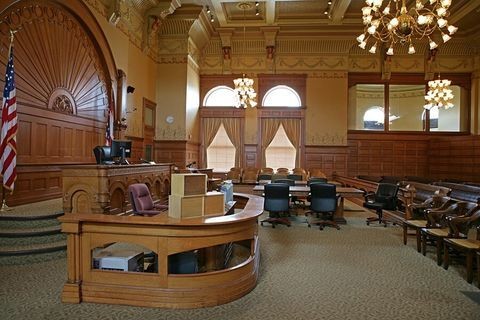Anuj Vohra
Overview
Contractors at an impasse with their government customers turn to Anuj Vohra for creative solutions; decisive, actionable guidance; and effective advocacy.
Career & Education
- Department of Justice: Civil Division
Trial Attorney, Commercial Litigation Branch, 2006 – 2012 - Illinois
Assistant Corporation Counsel, Constitutional and Commercial Litigation Division, City of Chicago Department of Law, 2003 – 2006
- Department of Justice: Civil Division
- University of Michigan, B.A.
- University of Illinois College of Law, J.D., cum laude
- District of Columbia
Professional Activities and Memberships
- American Bar Association, Section of Public Contract Law, Co-Chair, Bid Protest Committee
- U.S. Court of Federal Claims Bar Association
- South Asian Bar Association
Anuj's Insights
Client Alert | 4 min read | 05.13.24
Harmonizing AI with EEO Requirements: OFCCP’s Blueprint for Federal Contractors
Now more than ever, federal contractors find themselves at the intersection of innovation and regulation, particularly in the realm of Artificial Intelligence (AI). AI is now incorporated into a broad range of business systems, including those with the potential to inform contractor employment decisions. For that reason, the Office of Federal Contract Compliance Programs (OFCCP) has issued new guidance entitled “Artificial Intelligence and Equal Employment Opportunity for Federal Contractors” (the “AI Guide”). OFCCP issued the AI Guide in accordance with President Biden’s Executive Order 14110 (regarding the “Safe, Secure, and Trustworthy Development and Use of Artificial Intelligence”), which we reported on here. The AI Guide provides answers to commonly asked questions about the use of AI in the Equal Employment Opportunity (EEO) context. The AI Guide also offers “Promising Practices,” which highlight a number of important considerations for federal contractors. Focusing on federal contractors’ obligations and attendant risks when utilizing AI to assist in employment-related decisions, the AI Guide also provides recommendations for ensuring compliance with EEO requirements while harnessing the efficiencies of AI.
Representative Matters
- LightBox Parent, LP, B-420032.2 (Feb. 24, 2022); LightBox Parent, LP v. United States, 162 Fed. Cl. 143 (Sept. 14, 2022)—Served as lead counsel in the successful defense of an awarded $50 million Federal Communications Commission contract for data mapping services in serial bid protests filed at the GAO and the Court of Federal Claims.
- VAS Realty, LLC v. United States, 26 F.4th 945 (Fed. Cir. 2022)—Served as lead counsel in the successful appeal of a trial court dismissal of a General Services Administration lease offeror’s bid protest for lack of standing. The decision is being remanded to the Court of Federal Claims per clarified protester standing requirements.
- Schindler Elevator Corp. v. Washington Met. Transit Auth., 16 F.4th 294 (D.C. Cir. 2021)—Served as lead counsel in successful defenses, first in the U.S. District Court for the District of Columbia and then on appeal to the D.C. Circuit, of a Washington Metropolitan Transit Authority escalator repair contract.
- Wisconsin Physician Serv. Ins. Corp. v. United States, 151 Fed. Cl. 22 (2020)—Served as lead counsel in the successful defense of a bid protest challenging a Centers for Medicare & Medicaid Services award of contract for Medicare Administrative Contractor services.
- American Small Business League v. U.S. Department of Defense, 411 F. Supp.3d 824 (N.D. Cal. 2019)—Served as lead counsel in the successful defense of Department of Defense invocation of FOIA Exemption 4 to prevent disclosure of contractor documents in response to a FOIA request. The case represented one of the first applications of Exemption 4 following the Supreme Court’s decision clarifying scope of exemption in Food Marketing Institute v. Argus Leader Media, 139 S. Ct. 2356 (2019).
Anuj's Insights
Client Alert | 4 min read | 05.13.24
Harmonizing AI with EEO Requirements: OFCCP’s Blueprint for Federal Contractors
Now more than ever, federal contractors find themselves at the intersection of innovation and regulation, particularly in the realm of Artificial Intelligence (AI). AI is now incorporated into a broad range of business systems, including those with the potential to inform contractor employment decisions. For that reason, the Office of Federal Contract Compliance Programs (OFCCP) has issued new guidance entitled “Artificial Intelligence and Equal Employment Opportunity for Federal Contractors” (the “AI Guide”). OFCCP issued the AI Guide in accordance with President Biden’s Executive Order 14110 (regarding the “Safe, Secure, and Trustworthy Development and Use of Artificial Intelligence”), which we reported on here. The AI Guide provides answers to commonly asked questions about the use of AI in the Equal Employment Opportunity (EEO) context. The AI Guide also offers “Promising Practices,” which highlight a number of important considerations for federal contractors. Focusing on federal contractors’ obligations and attendant risks when utilizing AI to assist in employment-related decisions, the AI Guide also provides recommendations for ensuring compliance with EEO requirements while harnessing the efficiencies of AI.
Anuj's Insights
Client Alert | 4 min read | 05.13.24
Harmonizing AI with EEO Requirements: OFCCP’s Blueprint for Federal Contractors
Now more than ever, federal contractors find themselves at the intersection of innovation and regulation, particularly in the realm of Artificial Intelligence (AI). AI is now incorporated into a broad range of business systems, including those with the potential to inform contractor employment decisions. For that reason, the Office of Federal Contract Compliance Programs (OFCCP) has issued new guidance entitled “Artificial Intelligence and Equal Employment Opportunity for Federal Contractors” (the “AI Guide”). OFCCP issued the AI Guide in accordance with President Biden’s Executive Order 14110 (regarding the “Safe, Secure, and Trustworthy Development and Use of Artificial Intelligence”), which we reported on here. The AI Guide provides answers to commonly asked questions about the use of AI in the Equal Employment Opportunity (EEO) context. The AI Guide also offers “Promising Practices,” which highlight a number of important considerations for federal contractors. Focusing on federal contractors’ obligations and attendant risks when utilizing AI to assist in employment-related decisions, the AI Guide also provides recommendations for ensuring compliance with EEO requirements while harnessing the efficiencies of AI.






